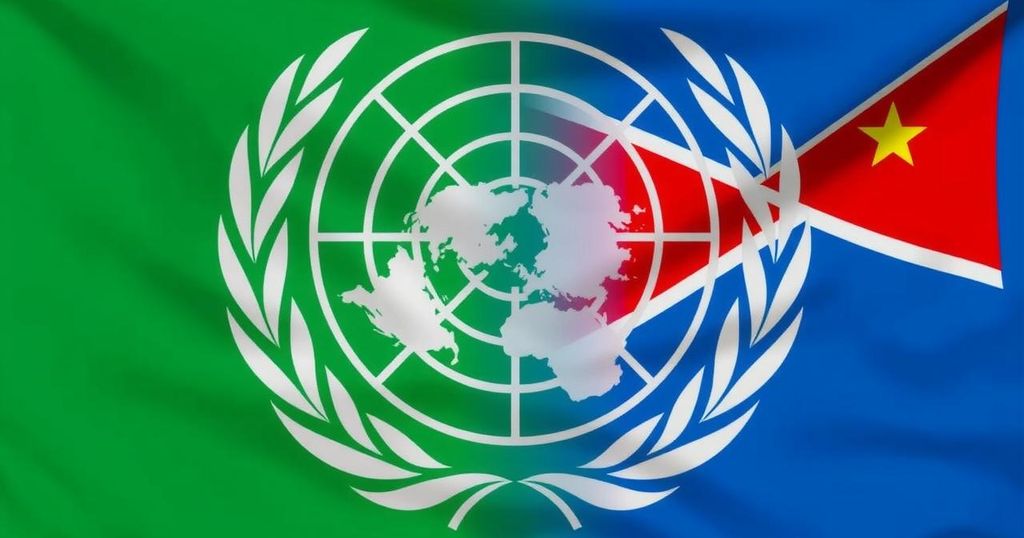Papua New Guinea will boycott the upcoming UN climate summit, citing frustrations with ineffective negotiations and the inaction of major polluters. Foreign Minister Justin Tkatchenko criticized the failures of past COP meetings to generate meaningful results, advocating for bilateral climate agreements instead. Papua New Guinea—home to significant rainforests—aims to prioritize constructive partnerships over traditional summits that have failed to address urgent climate concerns.
Papua New Guinea has decided to boycott the upcoming UN climate summit scheduled for November, with the country’s Foreign Minister, Justin Tkatchenko, labeling the discussions aimed at combating global warming as “a total waste of time.” He emphasized this stance in an interview prior to the COP29 summit set to take place in Azerbaijan, stating that the negotiations have not produced tangible results due to the inaction of major polluting countries. Foreign Minister Tkatchenko expressed frustration over the lack of progress, highlighting that despite claims of financial support for environmental initiatives, the funds have largely benefitted consultants rather than achieving real climate action. Papua New Guinea is a significant player in the global rainforest ecosystem, being home to the third-largest rainforest expanse worldwide, which plays an essential role in absorbing carbon emissions from industrialized nations. The Foreign Minister criticized a recurring pattern in climate summits, noting, “We are sick of the rhetoric as well as the merry-go-round of getting absolutely nothing done over the last three years.” He pointed out the urgent need for meaningful climate initiatives rather than mere discussions, advocating for bilateral agreements with like-minded countries such as Singapore. Historically, previous COP summits have culminated in substantial agreements such as the Paris Agreement; however, subsequent meetings have faced scrutiny and dissatisfaction from developing nations who feel overlooked. Mr. Tkatchenko articulated a sentiment shared by similar nations in the Pacific, emphasizing that weaker nations are not receiving necessary global attention and support. Consequently, Papua New Guinea aims to pursue its own path forward in addressing climate challenges independently of the UN framework.
The decision by Papua New Guinea to boycott the UN climate summit highlights a growing sentiment among developing nations regarding the effectiveness of international climate negotiations. The country, which is particularly vulnerable to climate change impacts, has expressed frustration over the perceived inaction of major polluters and the inefficacy of climate funding mechanisms established at previous COP meetings. This inquiry into the dynamics of power and accountability at climate conferences reveals a significant disconnect between the promises made by developed nations and the realities faced by those on the frontlines of climate change.
In conclusion, Papua New Guinea’s boycott of the upcoming climate summit exemplifies the broader frustrations expressed by developing nations regarding the efficacy of international climate negotiations. The warning from Foreign Minister Justin Tkatchenko underscores the urgent need for genuine actions and commitments from major pollutors, rather than mere rhetoric, to combat climate change effectively. By pursuing bilateral collaborations with countries that share a commitment to climate action, Papua New Guinea is seeking to forge a path that better addresses its environmental needs and priorities.
Original Source: www.straitstimes.com






